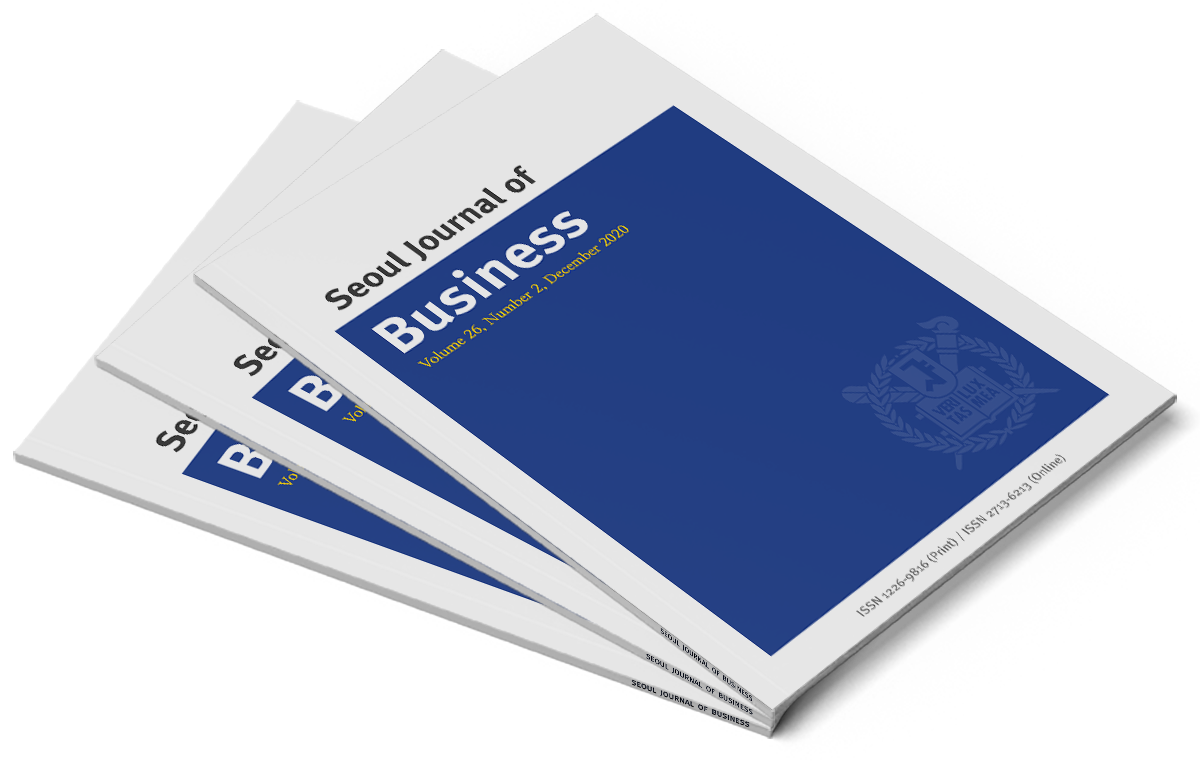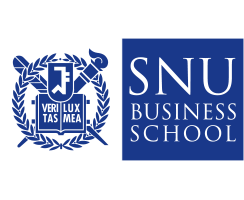Recent Issues
Vol.24/2 (2018, December)
Hyunkwon (kwon) CHo
Author Regulation FD Disclosure of 8-K filing and Stock Crash Risk
Keywords Stock crash risk; Regulation FD; 8-K filings
Download
This paper tests whether item 7.01 of the Form 8-K filing, which is subject to the regulation FD, mitigates stock crash risk. The regulation FD forces the firm to communicate private information using information channel with broad coverage. Such communications may mitigate the firm’s stock crash risk by revealing the negative news in a more timely manner. Consistently, I find a negative association between the frequency of item 7.01 disclosures with the negative news (measured by market reaction surrounding the Form 8-K filing date) and subsequent stock crash risk. On the contrary, the results show that there is no association between the frequency of item 7.01 disclosures with the positive news and subsequent stock crash risk. Such association is more pronounced when the firm’s is not followed by equity analysts or do not have high percentage of institutional ownership. I also find that item 7.01 disclosures provide incremental information over other voluntary items or mandatory items of the Form 8-K filing. Finally, I use tone of the item 7.01 disclosures to identify whether the news is positive or negative, and find consistent results to the main findings. Overall, these findings suggest that communications subject to the regulation FD, especially the negative ones, are an important mechanism that mitigate stock crash risk.
Vol.24/2 (2018, December)
Credit Risk and Underlying Asset Risk
Author JONG-RYONG LEE
Keywords Credit Risk, Expected Option Return, Pricing of an Option, Pricing of Risky Bond, Relation between Credit Risk as Expected Option Return and Asset Risk
Download
This paper develops the credit risk of simple risky bond (Merton 1974) as expected option return to the maturity and analytically presents that the credit risk is influenced by the underlying asset risks. The paper moreover shows that the direction and magnitude of the influence depends on what the underlying asset risks are. Simulation results indicate that the relations between the credit risk and the asset risks are different among asset risks.
Vol.24/2 (2018, December)
Investor’s Overreaction to an Extreme Event: Evidence from the World Trade Center Terrorist Attack
Author SOJUNG CAROL PARK
Keywords September 11, Overreaction Hypothesis, Uncertain Information Hypothesis, Information Asymmetry
Download
This paper investigates whether investors overreacted to the World Trade Center terrorist attack, using insurers’ stock returns. Short-term abnormal return reversals are observed after the 9/11 attack. The reversals may reflect the substantially increased uncertainty surrounding insurer stocks after the event, meaning that the price reactions are efficient risk adjustments. However, after controlling for the change in risk, I still find evidence of price reversals, which I attribute to investor overreaction. To bolster this claim, I provide cross-sectional evidence that reversals are stronger for insurers with higher information asymmetry, which have wider ex-ante bid-ask spreads and smaller numbers of analysts following. This result indicates that the reversals are likely due to behavioral biases.
Vol.24/1 (2018, june)
Feeling Stereotyped and its Effects on Investment Decisions
Author KYOUNGMI LEE
Keywords Stereotype Threat, Investment Decisions, Risk-taking tendency, Avoidance Motivation
Download
How do consumers respond in financial contexts when a negative stereotype about an ingroup is salient? I predicted and found that, in such circumstances, consumers consistently preferred safe investment options to riskier yet potentially better-pay-off ones, as compared to the situation in which a negative ingroup stereotype is not salient. The results of three experiments suggest that consumers tend to prefer stable securities (e.g., Treasury bonds or stocks with low betas) versus unstable securities (e.g., stocks with high betas) when a negative stereotype to their group is made salient.
Vol.24/1 (2018, june)
What Makes the Divergence between Cross-border VCs and Domestic VCs Persist?: in the Context of the Chinese VC industry
Author YUJIN KIM
Keywords Cross-border venture capitals (VCs), international VCs, VCs in developing economies, VCs in China, determinants of VC investments
Download
This project introduces the recent development of the Chinese VC industry. One characteristics of the Chinese VC market is that both cross-border VCs and local VCs play significant roles. The two types of VCs show clear difference in terms of invested sectors and geographic regions. This paper provides a literature review to address some mechanisms leading to the divergence. It also documents two mechanisms not addressed in the extant literature through interviews with local investors and startups: the rigidity of a typical startup’s fund structure and the types of limited partners of VCs explain why the divergence takes place in the first place and why the dissimilarity is likely to persist. The simple empirical analysis shows that cross-border VCs are more likely to invest in market-oriented high-tech sectors and regions with relatively well-established market institutions, while local VCs tend to invest in fields and regions of the nation’s strategic focus.
Vol.24/1 (2018, june)
Positive Correlation between Systematic and Idiosyncratic Volatilities in Korean Stock Return
Author KYU-HO BAE, JUNG-WOOK KIM
Keywords systematic volatility, idiosyncratic volatility
Download
Bartram, Brown, and Stulz (2016) report a strong positive correlation between systematic and idiosyncratic stock return volatilities and suggest heterogeneous firm-level responses to market wide shock may be an underlying driver. We test the hypothesis using Korean stock market data by including additional factors that reflect the macroeconomic conditions to the single factor model used in Bartram, Brown, and Stulz. Even though the correlation decreases by about 25% from 0.85 to 0.64 with additional factors, a substantial positive correlation still remains. In addition, we cannot find evidence that a high correlation industry experiences more volatile corporate sector dynamics in terms of changes in firm ranking and market share.
Vol.24/1 (2018, june)
Group Positive Affect and Group-level Organizational Citizenship Behavior: Investigating the Substituting Role of Leader Emotional Intelligence and the Mediating Role of Affective Fit Perception
Author MOON JOUNG KIM
Keywords group positive affect, affective fit perception, GOCB, leader EI
Download
In the present study, I examine how group-level positive affect (GPA) may interact with a leader’s emotional intelligence (EI) to generate important group outcomes, such as group-level perception of affective fit and group-level organizational citizenship behavior (GOCB). A moderated mediation model was tested by using the data of 293 employees nested in 66 work groups. Research findings show that the indirect effect of GPA on GOCB through the group-level perception of affective fit is stronger when leader EI is low than when leader EI is high. These results highlight the substituting role of leader EI in the relationship between GPA and affective fit perception. The current analysis reveals potential complementary functions of GPA and leader EI in explaining subsequent group processes and performance.
Vol.23/2 (2017, December)
Internal Labor Markets and Firm Innovation
Author SUNGCHOON KANG, JEONG-YEON LEE
Keywords Internal labor markets (ILMs), Organizational innovation, Resource-based view, Knowledge management, Environmental dynamism
Download
This study examines the relations between internal labor markets and
organizational innovation. From the knowledge-based view, we hypothesize
that ILMs will be positively associated with organizational innovation by
encouraging employees to share and integrate their knowledge. We also
attempt to uncover potential moderating effects of environmental dynamism
by focusing on its influence on knowledge stock and flow under ILMs. The
empirical results from a sample of 205 firms show that ILMs have an overall
positive influence on organizational innovation. However, the positive effect
is more pronounced as environmental dynamism increases.
Vol.23/2 (2017, December)
Auditors’ Responses to Organized Labor in Client Firms
Author SIMON YU KIT FUNG, WOO-JONG LEE, BIN SRINIDHI, LIXIN (NANCY) SU
Keywords Labor union, Audit fees, Going-concern audit opinions, Audit report
Download
Using a sample of US firms for the period 2000-2011, we examine whether
organized labor in audit client firms affects auditor decisions such as audit
fees and going-concern qualifications. We find that labor unionization is
associated with higher audit fees and a higher likelihood of going-concern
qualifications but shorter audit report lags, and the results on audit fees
are stronger in the case of strikes. These results suggest that the presence
of labor union(s) in a client firm constitutes a non-trivial risk element to
auditors, which cannot be mitigated by additional audit effort.
Vol.23/2 (2017, December)
The Variation of Liquidity Risk Premium
Author KUAN-HUI LEE
Keywords Liquidity, Liquidity risk, Liquidity risk premium, Liquidity shock
Download
New liquidity measure, based on trading volume induced by order flow as
in Pastor and Stambaugh (2002) but estimated with turnover rather than
with absolute level of dollar volume, is introduced and analyzed in this
paper. Aggregate liquidity measures are found to well track the history of
market liquidity problems. However, market price of liquidity risk, estimated
as a coefficient of liquidity shock, does not show any systematic timeseries
behavior so we could not find the variables which have significant
explanatory power for liquidity risk premium.
Seoul Journal of Business

ISSN 1226-9816 (Print)
ISSN 2713-6213 (Online)
ISSN 2713-6213 (Online)


